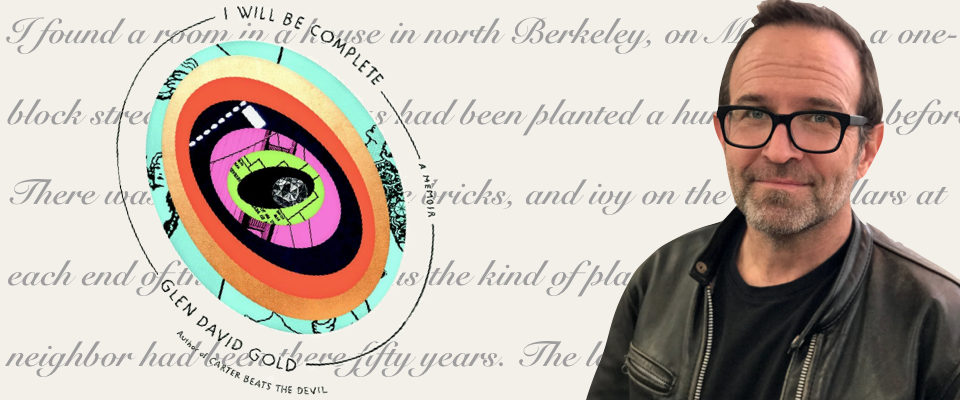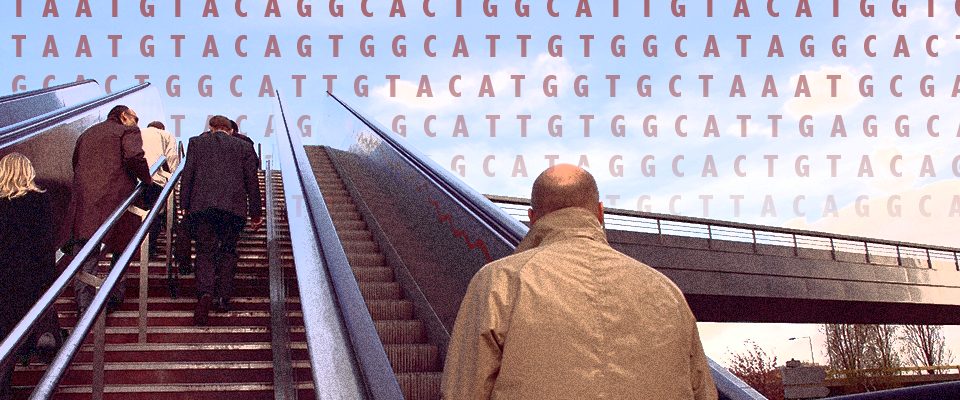The fifth National Ambassador for Young People’s Literature was inaugurated yesterday morning at the Library of Congress. Gathered under the ornate ceiling were rows of the literary elite and elementary school children, all awaiting words of wisdom from a guy who writes comic books.
That guy was Gene Luen Yang—a UC Berkeley computer science graduate and former computer science teacher—and he was already pretty popular. Famous for his graphic novels, American Born Chinese, The Shadow Hero, and Secret Coders, he’s now writing Superman for DC Comics. He’s also the first graphic novelist to be nominated for a National Book Award, the first to win the American Library Association’s Printz Award, and the newest National Ambassador for Young People’s Literature.
If this were a traditional comic, now might be a good time to insert a good old BOOM, KAPOW, or maybe ZAP! Then again, Yang is anything but traditional.
“Every ambassador picks a platform, so some kind of issue that they want to talk about, and a phrase that sums up that issue,” he explained. “My phrase is ‘Reading Without Walls.’ ” The theme aims to encourage young people to read books that scare them. “We want kids to read outside of their comfort zone, to pick a book with somebody on the cover who doesn’t look like them, to pick a book about a topic they previously found intimidating,” Yang said.
He will spend his two-year term as Ambassador preaching that message at libraries, bookstores and other literary events.
Granted, he should have little trouble convincing kids to read comics. Sales in the United States of comics and graphic novels are exploding, reaching $870 million in 2013, an increase from $265 million in 2000.
Yang, now 42, first discovered comic books and started making his own in the fifth grade. “Nowadays any kid can make a movie, but back then, it was impossible for a ten year old to make a movie,” Yang said. “But a ten year old could make a comic book.”
With a friend, he made a comic book about a superhero who lived in the woods. Eventually, he started selling some of his creations to his classmates for $8 each.
“I stopped for a while in junior high when a friend of mine, who was way more popular, said to me that I’d never date anyone if I kept collecting comics,” Yang said. “I started collecting comics in my junior year, and I got my first girlfriend my senior year.
“So he was totally wrong.”
Now he’s married, living with his wife and four kids in San Jose. He’s the son of a Chinese software engineer and a Taiwanese electrical engineer, which might explain why he majored in computer science and then began a career as a programmer. But he soon left his tech career to teach computer science at Bishop O’Dowd High School in Oakland.
As for his selection as Ambassador of Young People’s Literature? “It shocked me,” he said. “Up until recently, comic books and books in America were seen as two separate markets. Now all the markets are coming together in a big way, and it’s awesome.”
Yang was chosen for his new role by The Library of Congress, the Children’s Book Council, and Every Child a Reader. Lovers of graphic novels understandably see his selection as a sign that comic books are being fully appreciated as a lasting form of literature. Yang also sees them as a powerful educational tool.
One of his comics, Secret Coders, involves a mystery that can only be solved by following basic programming instructions along the way. It’s meant to teach kids to be less afraid of binary code—and he’s already working on the sequel.
“I know a huge number of people wouldn’t take the class because they were afraid,” Yang said. “So we’re missing a bunch of kids who have the potential to be coders. My book isn’t the same as a computer science class, but my hope is that kids will read the book and be interested enough to take a class.”
When Yang minored in creative writing at Berkeley, he didn’t even think to try to incorporate his love of comics into the classroom. “Now I think it’s completely different,” he said. “My bet is now there are kids at Cal who are doing that. But those creative writing classes were still helpful to me. We read this book called The Writer’s Voice. That’s what I did. I found my writer’s voice.”
Hertha Wong, an adjunct professor in the English department at UC Berkeley, has taught American Born Chinese for her graphic memoir class. “I included American Born Chinese because it looks on the surface like a simple and charming coming-of-age story, but is much more,” Wong said. “Yang tells a triple narrative.”
In the novel, one character is the only Chinese American student in his school. Another boy’s reputation is threatened by his Chinese cousin. Then there’s Monkey King, who has trouble fitting in when he goes to heaven (not such an ideal place for a monkey, it turns out). It is in keeping with his work, which explores themes of identity and belonging—what it’s like to be an outsider.
“Gene’s broad appeal stood out for the committee specifically as an author that deals with themes of diversity. The fact that he was a graphic novelist also drew the committee,” said Jon Colman, executive director of the Children’s Book Council and Every Child a Reader.
The comic book industry faces its own struggles with diversity, not unlike the rest of the publishing world. Tim Hanley, a comics historian and researcher, about 79 percent of people working on comic books in 2014 were white.
“It’s a discussion happening in all mediums, especially books. Our kids are looking around, and seeing that they live in a diverse world. So they want diversity reflected in the books they read as well,” Yang said. “I’m not the only one talking about it. I’m not even the most articulate one talking about it. I think it’s a cultural moment right now, I think it’s important.”





















